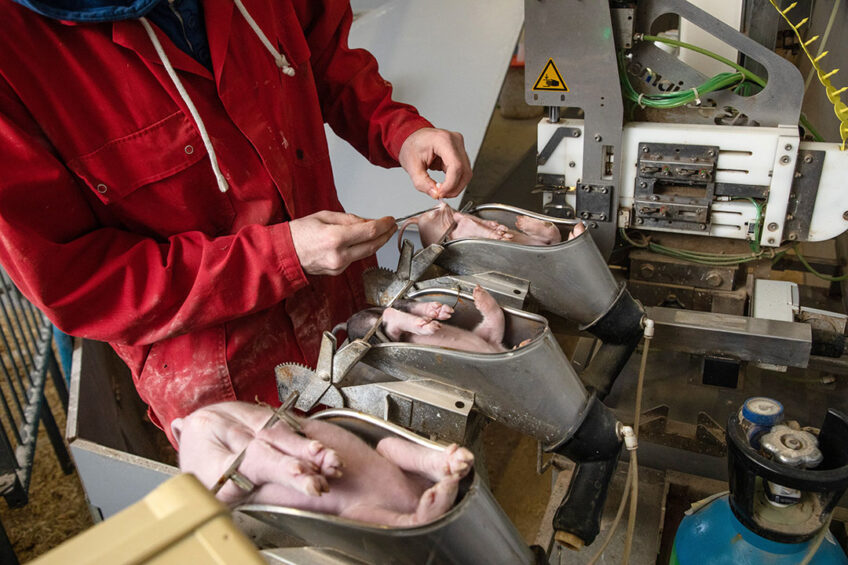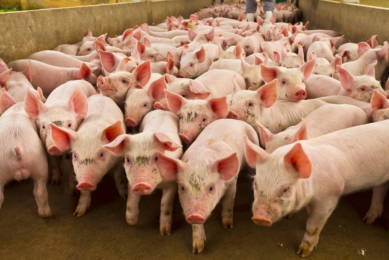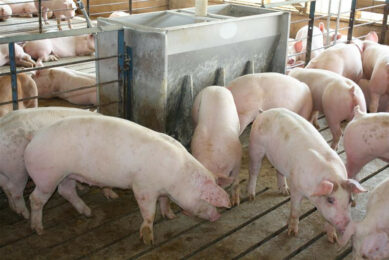New US study on gene edited pork and other food products

The arrival of gene editing tools has led the world to a point in time when dozens if not hundreds of new food products will soon be available. They will be added to products already out there which are genetically modified.
In 2020 in the U.S., ‘GalSafe’ pigs joined salmon as the only GMOs approved for human consumption. The US Food and Drug Administration (FDA) approved the use of these pigs in the production of drugs, to provide organs and tissues for human transplant, and to produce meat for people with meat allergies.
Avoiding castration
Gene editing also provides a way to avoid castration, an animal welfare issue that has received a large amount of attention in recent years.
Consumer study
A new study from Iowa State University (ISU) has been released, the first to gauge public acceptance in that country of gene edited foods using a nationally representative sample of 2,000 US residents. It is part of the Gene Edited Foods Project, which is currently working on a set of recommendations for governance tools and strategies to address gaps in public trust.
As described in the news release, the survey will be repeated every 2 years for the next decade to track how public attitudes on gene edited foods shift as more products come onto the market.
Our study shows that when you have a new technology that people are not familiar with, other factors play a much bigger role, especially people’s social and ethical values, and whether they trust government and industry to protect them
Co-lead researcher David Peters
Observations so far
“Food industry experts tend to have the mindset that people make decisions about food based on the cost, appearance, taste and nutritional content,” said co-lead researcher David Peters, a professor of sociology and a rural sociologist with ISU Extension and Outreach, in the release. “But our study shows that when you have a new technology that people are not familiar with, other factors play a much bigger role, especially people’s social and ethical values, and whether they trust government and industry to protect them.”
2 groups
The study showed that there are 2 main groups in terms of those values. People who are more willing to eat raw or processed gene-edited foods generally view science and technology as a primary means to solve society’s problems. They place a high level of trust in government food regulators and the agriculture biotechnology industry and generally do not have strong beliefs about how food should be produced. They also tend to be younger (Generation Z and millennials under 30 years of age) with higher levels of education and household incomes.
However, those who are more likely to avoid eating raw or processed gene edited foods are more skeptical of science and technology. They place greater value on the way their food is produced, saying ethics play an important role, and rely more on their own personal beliefs or environmental groups rather than government and industry. People in this group also tend to have lower incomes and be more religious, older and female.
Many people still in the middle
“Right now, there are a lot of people in the middle,” stated Senior Research Fellow Christopher Cummings in the release. He co-led the research and is art of an interdisciplinary team of experts from ISU and the State University of New York College of Environmental Science and Forestry.
“They have not fully made up their mind about gene edited foods, but as they learn more about the technologies and products, they will likely move to one side of the issue. I think it will depend on their consumer experience — what kind of messaging they trust and who sends it, as well as what products they encounter.”
Survey results a concern
About 60% of the women in the survey said they would be unwilling to eat, and would purposely avoid, gene-edited foods.
These findings were discussed at the recent US National Pork industry Conference (NPIC).
Jim Long, president of genetics firm Genesus, was part of the discussion. Afterward, he noted in an article on his company’s website that “our concern is if 60% of women say they won’t eat, purchase or purposely avoid the product, what does that do to pork demand and pricing? We believe it will destroy [them].”
McDonald’s
Long also explained that at a prior NPIC, a senior executive from the fast food chain McDonald’s “told everyone there ‘Do not expect us to explain gene editing.’ When the largest restaurant chain in the world – and one certainly not with elitist clientele – gives that warning, we should pay attention.”
Long is of the belief that before the pork industry rushes head first into a world of gene editing, the entire industry, along with consumers, need to look at the topic in detail.











